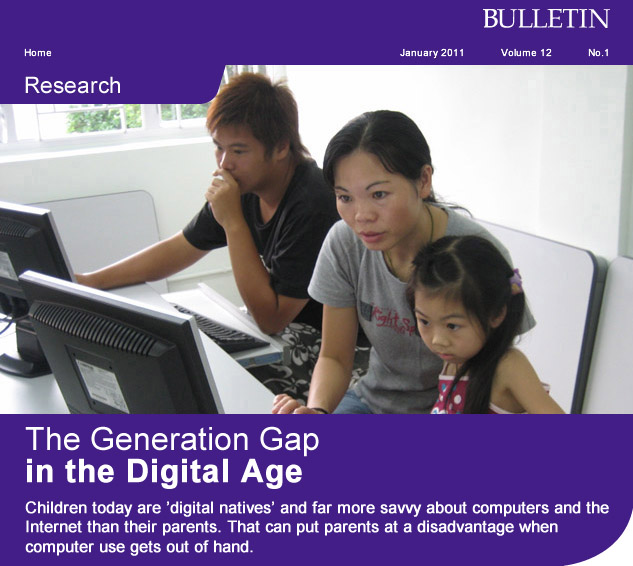|
Internet addicts had little physical contact with their peers and those friends they had tended to be mainly online and not in the real world. Older boys were more likely to be addicts and spent a lot of time playing online games, but girls could be addicted, too, and spent more time on social networking sites.
This posed a challenge to parents, as nearly one-third said they were not satisfied with their ability to help and protect their children when they were online. However, Dr Wong said Internet addiction could be mitigated by parenting style.
“If the parents used an authoritative style, in which they made demands on their children but had a warm emotional relationship with them, then it was less likely the children would develop an addiction.
“But if they were authoritarian and emotionally detached from their children, you saw high levels of symptoms. It wasn’t necessarily cause and effect because it may be that parents see their children become addicted and so they become authoritarian,” he said.
No relationship between addiction and parenting style was found when parents who had a permissive, indulgent approach.
Dr Wong said educating parents about the Internet, particularly those in the lower-income range, could help them better understand what their children were up to and enable them to monitor them more effectively.
The study was commissioned by the government to provide input to policies on computer and Internet access. Dr Wong next hopes to explore the extent of the digital divide in Mainland China.
Photos above: Courtesy of Information Technology Resource Centre, the Hong Kong Council of Social Service. |

